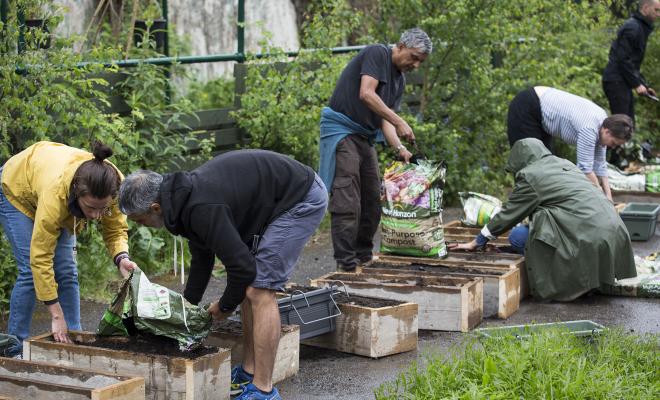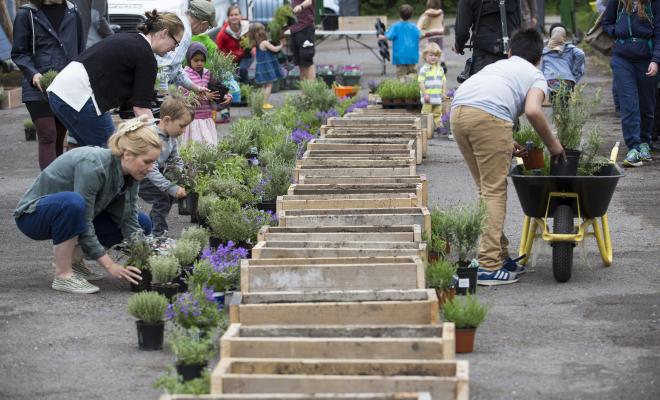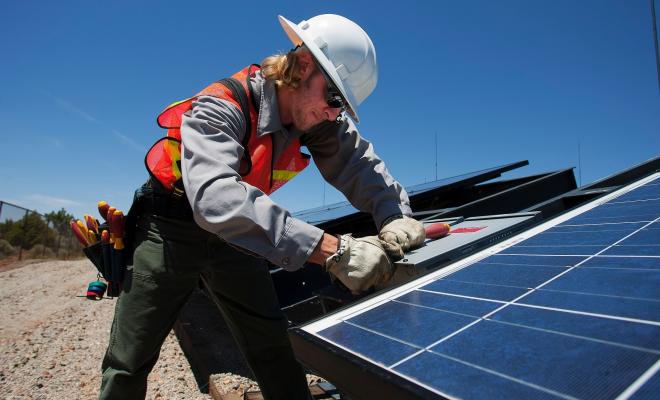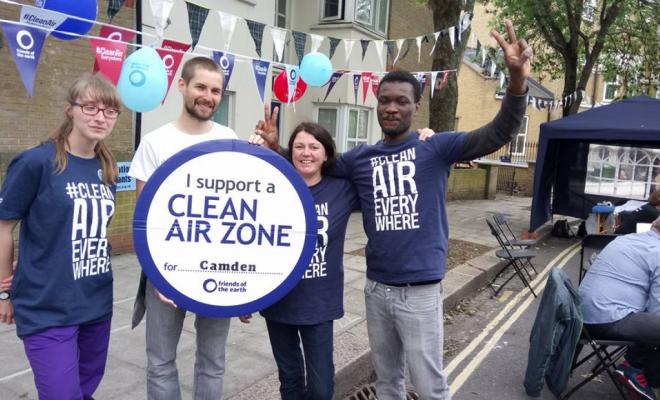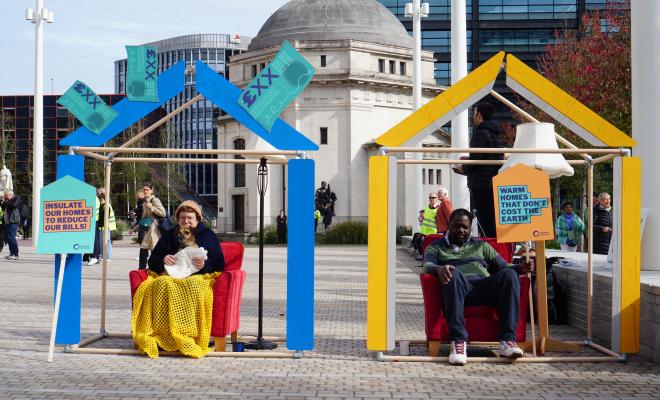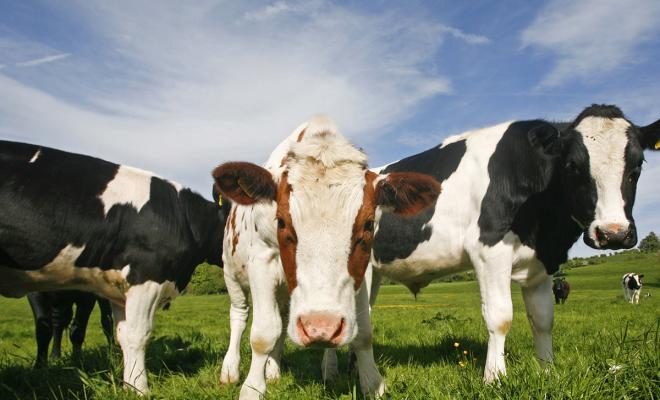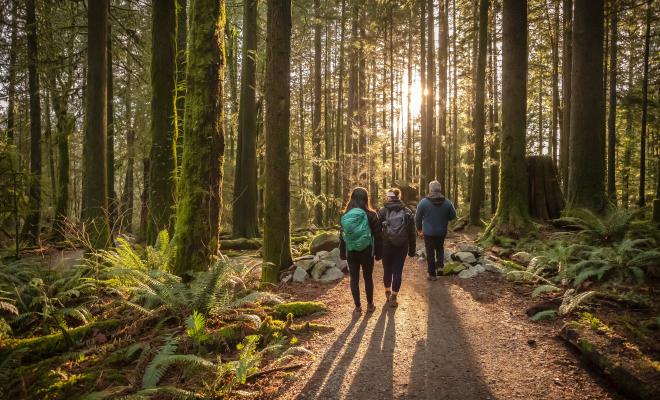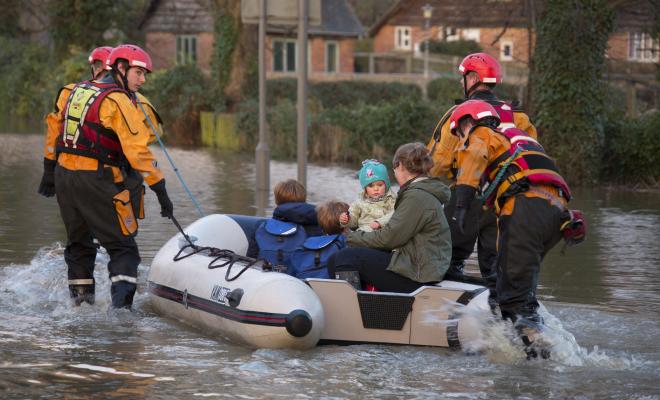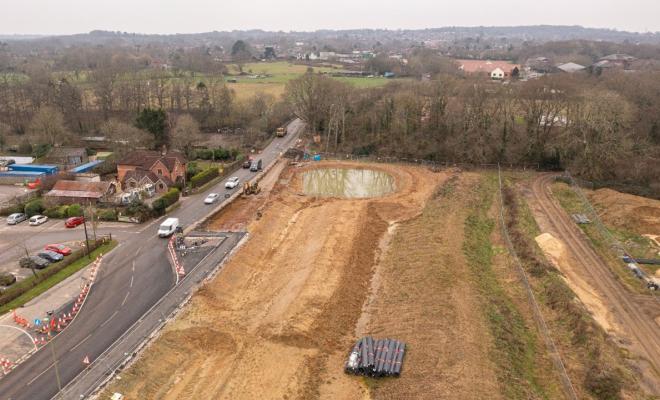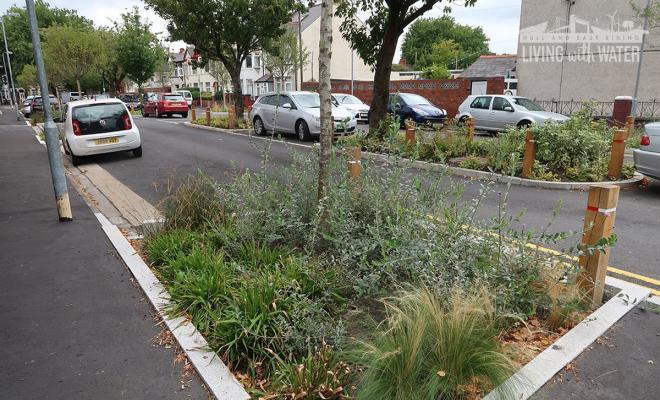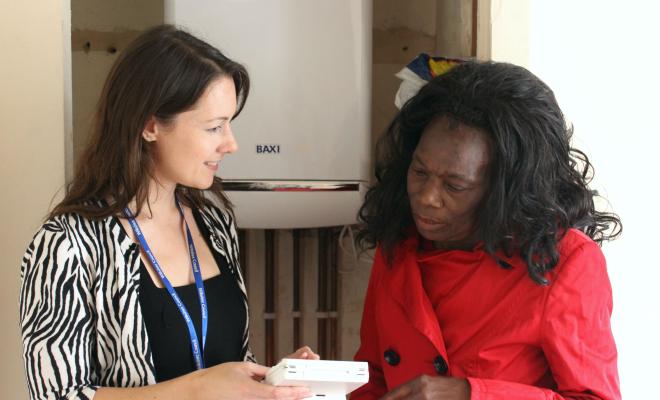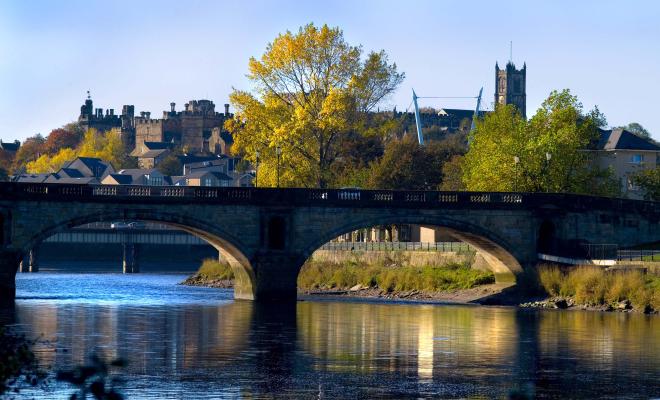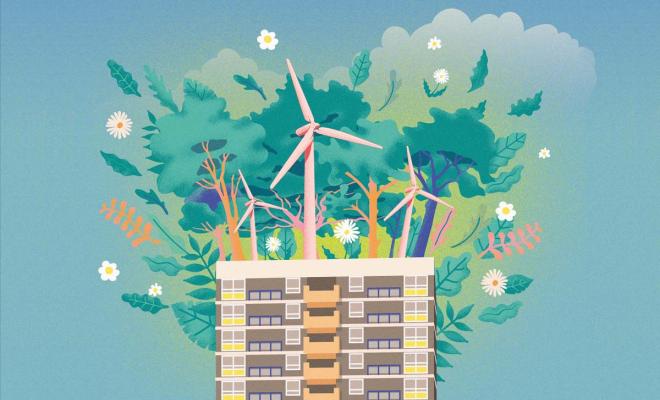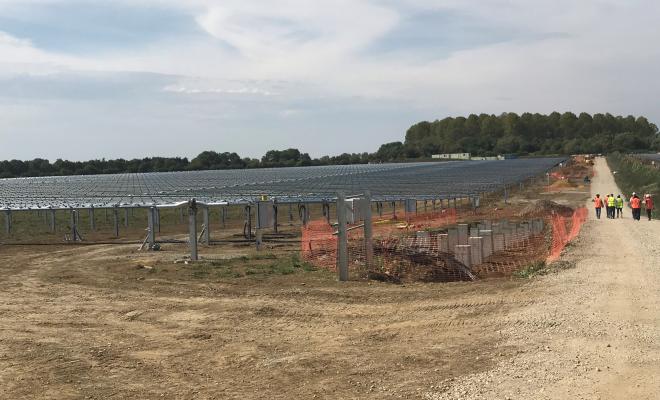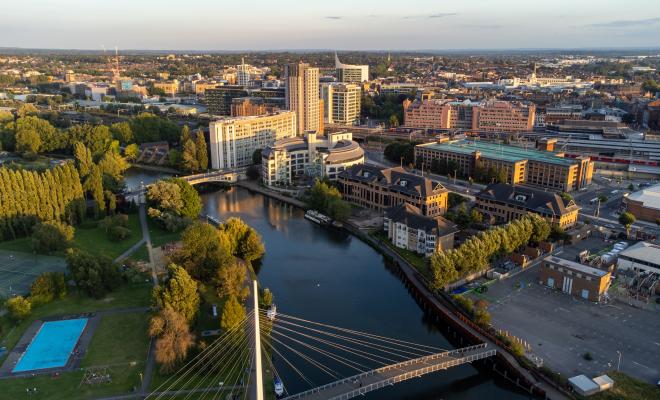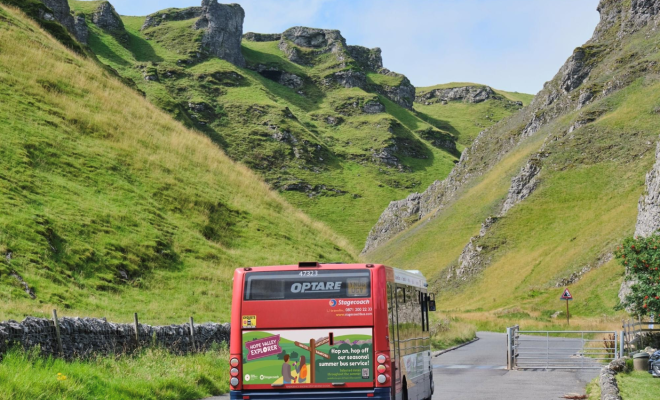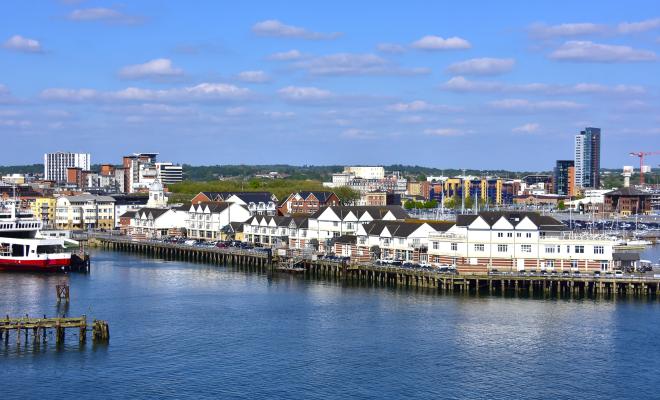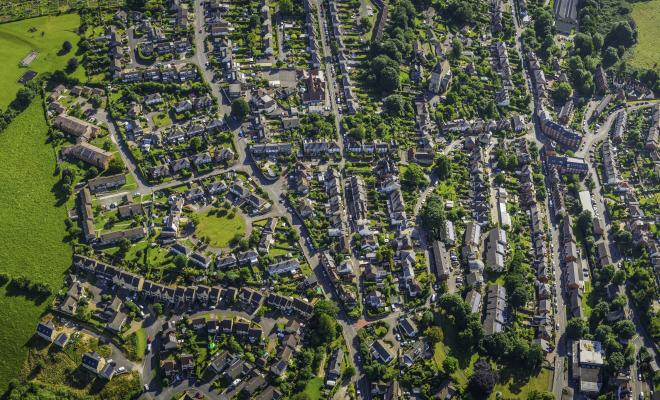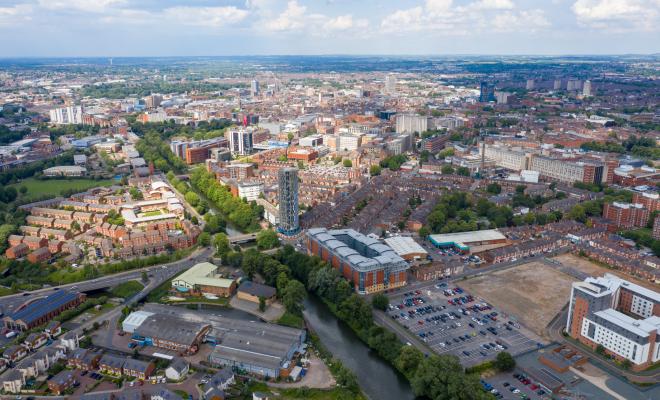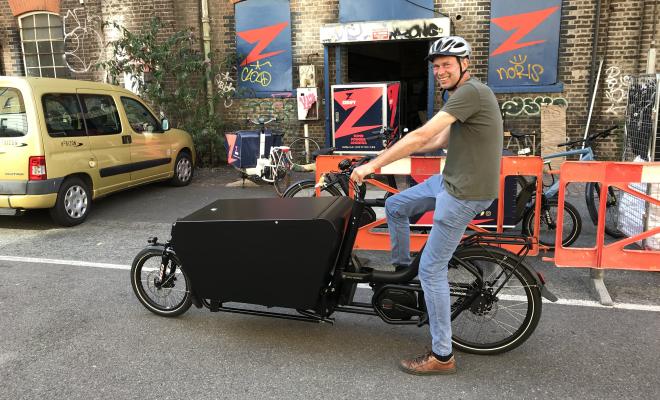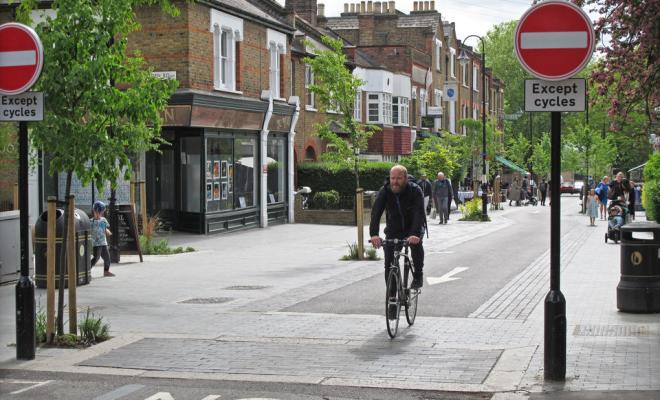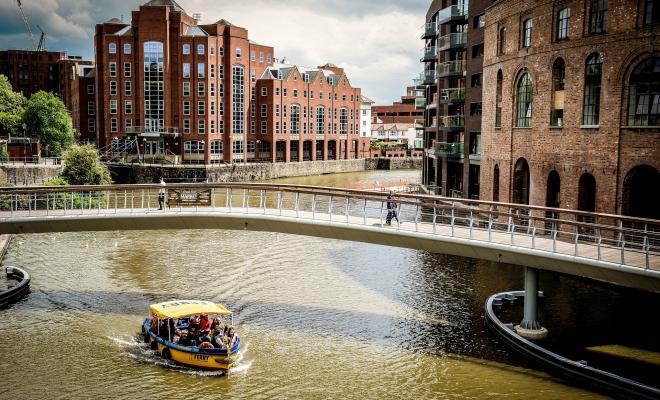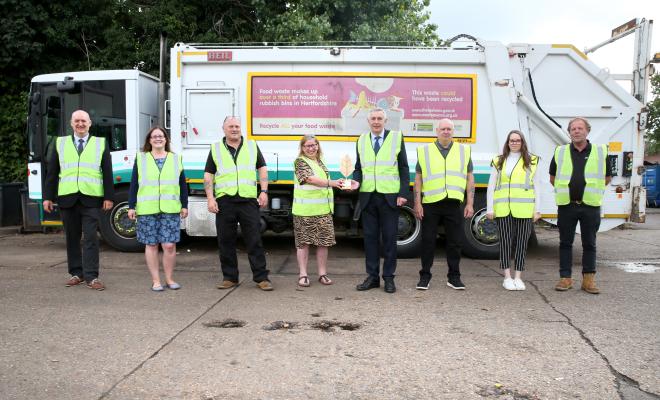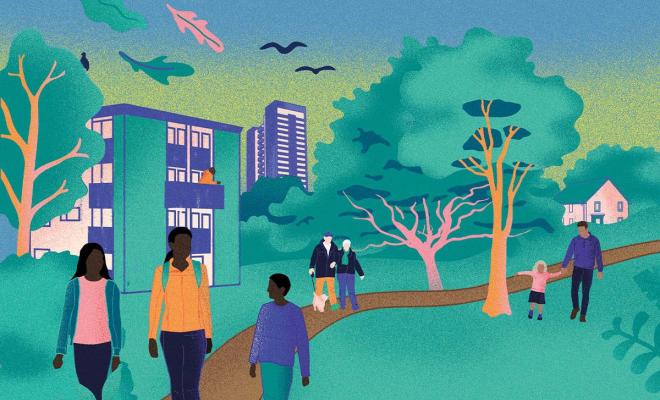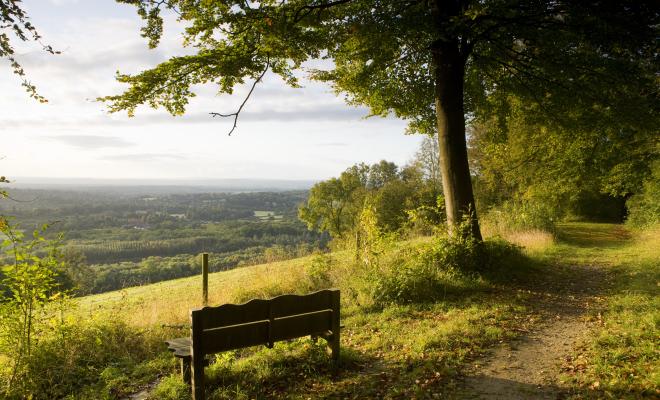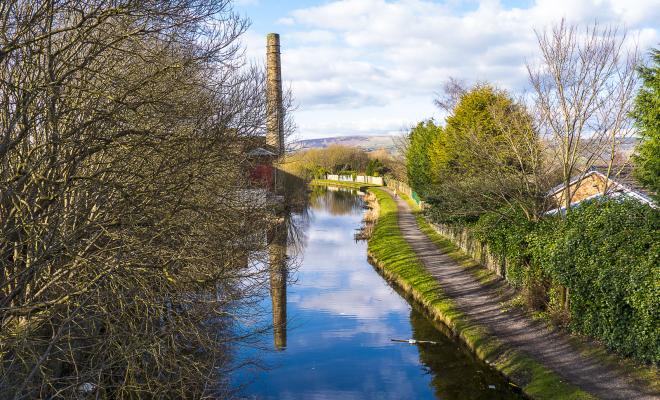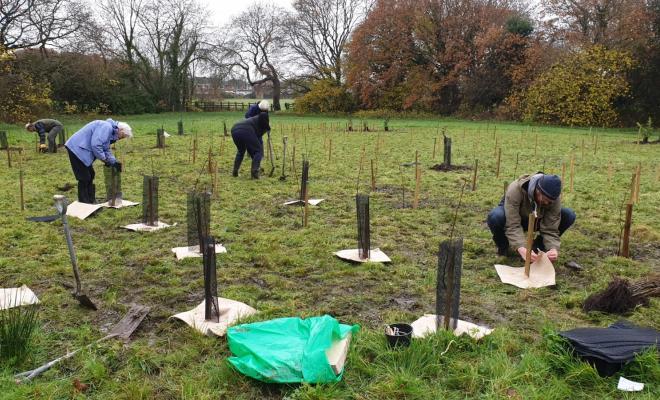Decision making
29 Jan 2026
Use this guide to help you understand why local elections matter where you live and work with your local community to identify shared local priorities.
29 Jan 2026
More money is needed to protect people and businesses from flooding and extreme heat.
29 Jan 2026
Climate change is leading to more floods, extreme heat, power outages and other disruption. Communities need to come together during these times.
29 Jan 2026
The green economy is already growing much faster than the rest of the economy and creating new jobs. The jobs of the future will be in clean energy, electric heating and electric vehicles.
29 Jan 2026
Air pollution causes around 30,000 deaths every year. Petrol and diesel cars are a major cause of the problem. A switch to electric vehicles will help, but better bus services and cycling infrastructure is also needed.
29 Jan 2026
Energy costs sky-rocketed after Ukraine was invaded as the price of gas soared. Bills remain high, especially for those in poorly insulated homes. Electricity from renewable energy is cheaper than that produced using gas. We need to build more renewable energy and ensure people living nearby benefit financially.
28 Jan 2026
The UK has a proud tradition of providing people fleeing war and persecution with a safe welcoming home. Migrants continue to contribute to our society, for example through working and paying taxes. Without migrants our NHS and care homes would be in even worse trouble.
28 Jan 2026
Farming is at the frontline of climate extremes, in the UK and overseas. Droughts, wet periods and flooding all make growing crops and raising livestock difficult. Earning a living from farming then becomes harder.
28 Jan 2026
The mental health benefits of green space and trees in our cities is increasingly recognised, as are the benefits of ponds and rivers. These areas also provide a cooling effect during the increasingly extreme heat waves caused by climate change.
29 Jan 2026
Climate change is already causing havoc for people and nature across the world, including here in the UK, with flooding, wildfires, droughts and extreme heatwaves increasing. The more carbon emissions released the worse these impacts will get. It’s time to get serious and stop giving the go-ahead to yet more high carbon developments.
20 Sep 2024
Discover how Cornwall Council used a simple, locally-tailored tool to check the social and planetary impact of its plans and guide decision-making right across the council. Checking whether council decisions would help or hinder climate action forms part of Action 1 of the 50-point Climate Action Plan for Councils.
20 Sep 2024
Learn how Lewes District Council is keeping climate ambition on track by setting short-term measurable goals for climate- and nature-related targets. Setting interim goals to maintain momentum is part of Action 4 in the 50-point Climate Action Plan for Councils.
20 Sep 2024
Learn how Cotswold District Council appointed climate champions to make more progress on climate goals. Appointing climate champions is Action 2 in the 50-point Climate Action Plan for Councils: identify both a councillor at a cabinet level and a lead officer as Climate and Nature Champions, who are required to publish a twice-yearly independent and audited public report on progress in meeting climate change and nature targets.
20 Sep 2024
Learn how Blaenau Gwent set up a citizens' assembly for £50,000 and made sure local people have a say on climate decisions in Wales. Listening to local people forms Action 6 in the 50-point Climate Action Plan for Councils, which is to review and improve how we involve citizens in our existing decision-making processes.
Climate vulnerability
28 Jan 2026
During elections politicians make more of an effort to listen. Tell them you care about climate change. Tell them you want action to protect households, farmers and businesses from extreme weather.
20 Sep 2024
Hampshire County Council has developed 2 decision making tools including a climate adaptation tool that's used to develop climate resilience in the area, for example in communities vulnerable to climate impacts. Targeting climate change adaptation at people and neighbourhoods most at risk from extreme weather events is part of Action 11 in the 50-point Climate Action Plan for Councils.
20 Sep 2024
Learn why Kingston Council is backing the climate action Blueprint that calls for more powers and resources for local councils. Supporting the Blueprint is Action 50 in the 50-point Climate Action Plan for Councils, along with 49 other actions councils can take to act on climate.
20 Sep 2024
Find out how Dundee City Council is developing climate policies by prioritising residents most at risk of extreme weather events and fuel poverty. Prioritising those most at risk is Action 11 in the 50-point Climate Action Plan for Councils.
20 Sep 2024
Learn how Blaenau Gwent set up a citizens' assembly for £50,000 and made sure local people have a say on climate decisions in Wales. Listening to local people forms Action 6 in the 50-point Climate Action Plan for Councils, which is to review and improve how we involve citizens in our existing decision-making processes.
20 Sep 2024
Find out how Hull City Council ensured the opinions of vulnerable communities were used to help co-design much-needed flood defences in the city. This approach forms Action 12 of the 50-point Climate Action Plan for Councils, to ensure that the voices of the most vulnerable communities are also represented in council decision-making and council-citizen deliberations.
Energy
20 Sep 2024
Wiltshire Council runs a fuel poverty support service and is retrofitting council housing. This case study relates to Actions 11 and 13 of the 50-point Climate Action Plan for Councils. Action 11 includes targeting policies, actions and spending towards people most at risk of fuel poverty, while Action 13 involves retrofitting council-owned properties.
20 Sep 2024
Islington Council has created a joined-up network of services that aim to support vulnerable Londoners facing fuel poverty. This case study relates to Actions 11 and 14 of the 50-point Climate Action Plan for Councils. Action 11 includes identifying people most at risk of fuel poverty and targeting policies, actions and spending towards them, while Action 14 involves helping owner-occupied and fuel-poor homes be more energy efficient, for example via insulation.
20 Sep 2024
Lancaster City Council conducted a prompt review of its Local Plan to ensure the policies it contains will help tackle the climate crisis. Aligning plans, policies and guidance with climate targets forms part of Action 5 in the 50-point Climate Action Plan for Councils.
20 Sep 2024
Adapting to renewable energy needs a workforce with the skills to make the change, but the current green skills gap around the country shows an urgent need for training. Read how Dundee City Council is addressing this through greater investment and innovation in renewable energy systems, and by providing training. Supporting the development of renewable energy and providing skills training for local workers forms Action 33 of the 50-point Climate Action Plan for Councils.
20 Sep 2024
Learn how Stroud District Council is encouraging renewables in its Local Plan. Growing renewable energy generation by identifying suitable areas in the Local Plan is part of Action 29 in the 50-point Climate Action Plan for Councils.
20 Sep 2024
Learn how South Lakeland District Council's business support initiatives targeted a green recovery from coronavirus and helped small businesses to cut carbon emissions. Fostering a green economy is part of the 50-point Climate Action Plan for Councils under Action 43, to provide particular support to small and medium-sized enterprises to access funds and expertise, so they can contribute to carbon pollution reduction, nature restoration and the growth of the green economy.
20 Sep 2024
Learn how Waltham Forest has divested pensions out of fossil fuels and is switching to green investments. Divesting all investments from fossil fuels, including any pension funds, and investing in renewable energy projects instead is Action 35 of the 50-point Climate Action Plan for Councils.
20 Sep 2024
Learn how Cambridgeshire County Council is developing successful solar farms. Using less fossil fuel-derived energy forms part of Action 31 of the 50-point Climate Action Plan for Councils: to reduce the energy used by the council in its own estate.
20 Sep 2024
Learn how Warrington Borough Council has raised money from local climate bonds for low-carbon infrastructure, to speed up carbon emission reductions and increase resilience to the pandemic. The use of Community Municipal Investments sits under Action 8 of the 50-point Climate Action Plan for Councils.
20 Sep 2024
North East Derbyshire District Council has upgraded hundreds of hard-to-treat council homes – lowering emissions and tackling fuel poverty. Retrofitting council-owned properties with heat pumps and high levels of insulation where possible is Action 13 in the 50-point Climate Action Plan for Councils.
Buildings
20 Sep 2024
Wiltshire Council runs a fuel poverty support service and is retrofitting council housing. This case study relates to Actions 11 and 13 of the 50-point Climate Action Plan for Councils. Action 11 includes targeting policies, actions and spending towards people most at risk of fuel poverty, while Action 13 involves retrofitting council-owned properties.
20 Sep 2024
Islington Council has created a joined-up network of services that aim to support vulnerable Londoners facing fuel poverty. This case study relates to Actions 11 and 14 of the 50-point Climate Action Plan for Councils. Action 11 includes identifying people most at risk of fuel poverty and targeting policies, actions and spending towards them, while Action 14 involves helping owner-occupied and fuel-poor homes be more energy efficient, for example via insulation.
20 Sep 2024
Lancaster City Council conducted a prompt review of its Local Plan to ensure the policies it contains will help tackle the climate crisis. Aligning plans, policies and guidance with climate targets forms part of Action 5 in the 50-point Climate Action Plan for Councils.
20 Sep 2024
Discover how Cornwall Council used a simple, locally-tailored tool to check the social and planetary impact of its plans and guide decision-making right across the council. Checking whether council decisions would help or hinder climate action forms part of Action 1 of the 50-point Climate Action Plan for Councils.
20 Sep 2024
Learn how Cotswold District Council appointed climate champions to make more progress on climate goals. Appointing climate champions is Action 2 in the 50-point Climate Action Plan for Councils: identify both a councillor at a cabinet level and a lead officer as Climate and Nature Champions, who are required to publish a twice-yearly independent and audited public report on progress in meeting climate change and nature targets.
20 Sep 2024
Learn how Greater Manchester’s smart energy plan will improve energy performance and lower carbon emissions. This plan forms part of the 50-point Climate Action Plan for Councils under Action 19, to develop a heating and energy efficiency strategy for the area, including providing skills and training to increase local employment to aid recovery from the COVID-19 pandemic.
20 Sep 2024
Learn how Reading Borough Council is using planning to ensure new homes are built to zero-carbon standards. This is part of Action 16 under the 50-point Climate Action Plan for Councils. Through Local Plan policies, councils should require that new housing development is zero carbon by 2025, including the incorporation of renewable energy in the development, using low-carbon materials, and building to extremely high energy-efficient standards (higher than current national standards) using the Passivhaus standard or similar.
20 Sep 2024
Learn how Barnsley's community energy scheme tackled fuel poverty among older people and helped fund neighbourhood projects. Installing local renewable energy sources in council developments and within private and public sector developments is part of Action 32 in the 50-point Climate Action Plan for Councils.
20 Sep 2024
Learn how Hastings Borough Council has partnered with other East Sussex councils to help low-income residents become more energy efficient. Increasing the energy efficiency of homes is Action 14 of the 50-point Climate Action Plan for councils.
20 Sep 2024
Learn how South Gloucestershire Council raised £1.5 million from a housebuilding levy to fund climate infrastructure improvements. Using a housebuilding levy is Action 9 in the 50-point Climate Action Plan for Councils: use legal and planning mechanisms such as Section 106 agreements, the Community Infrastructure Levy, and other mechanisms to fund climate actions and nature restoration projects.
20 Sep 2024
Learn how Liverpool City Council is creating warmer homes, by engaging with landlords and introducing a new 5-year selective licensing designation. This case study relates to Actions 10 and 15 of the 50-point Climate Action Plan for Councils. Action 10 involves implementing private-rented sector licensing to cover the enforcement costs of energy-efficiency compliance, while Action 15 is about rapidly enforcing minimum energy-efficiency standards and encouraging higher EPC levels in the private-rented sector.
20 Sep 2024
North East Derbyshire District Council has upgraded hundreds of hard-to-treat council homes – lowering emissions and tackling fuel poverty. Retrofitting council-owned properties with heat pumps and high levels of insulation where possible is Action 13 in the 50-point Climate Action Plan for Councils.
20 Sep 2024
City of York Council is building 400 zero-carbon homes, using the innovative Passivhaus approach as part of its Climate Action Plan. Zero-carbon homes form part of Action 18 in the 50-point Climate Action Plan for Councils, to require buildings on council land to be extremely energy efficient, using the Passivhaus standard or similar.
Transport
20 Sep 2024
Hope Valley Climate Action is collaborating with Derbyshire County Council to encourage active travel, improve public transport and decrease car use in the community. Prioritising transport investment in walking, cycling and public transport forms Action 21 in the 50-point Climate Action Plan for Councils.
20 Sep 2024
Reducing car use and encouraging active travel can help reduce emissions and lower pollution levels. Under its Streets for People strategy, Southwark Council is expanding on earlier measures, part-funded by a local health charity, to encourage active travel and support areas most affected by child obesity and poor air quality. Reducing car use forms part of Action 23 of our 50-point Climate Action Plan for Councils.
20 Sep 2024
Learn how regional transport bodies can boost low-carbon travel. Ensuring the Sub-national Transport Body strategy is in line with carbon budgets, is Action 41 of the 50-point Climate Action Plan for Councils.
20 Sep 2024
Learn how Southampton has cut air pollution by supporting greener taxis, buses and deliveries. Reducing air pollution is part of the 50-point Climate Action Plan for Councils, under Action 22: put in place Clean Air Zones, with charges if needed.
20 Sep 2024
Learn how Stroud District Council is using development planning to cut car use. Making developments strategic like this is one of 50 climate actions for councils, under Action 28, to reduce the need to own and use a car by requiring that the location and design of new developments be accessible by safe cycling, walking routes and good quality public transport, and situated close to key services.
20 Sep 2024
Learn how Leeds City Council is making all its vehicles electric and helping residents and businesses do the same. Transitioning to electric vehicles is one of 50 climate actions for councils, under Action 25, to deliver a rapid transition of the council’s own fleet to electric vehicles.
20 Sep 2024
Learn how Leicester City Council’s active travel strategy is boosting bus use and cycling in the city. This investment forms part of the 50-point Climate Action Plan for Councils under Action 21, to prioritise transport investment in cycling, walking and public transport, with a priority of installing segregated cycleways on most roads, increasing space for pedestrians, and introducing a 20 mph speed limit in urban areas.
20 Sep 2024
Learn how Brighton and Hove City Council is pioneering electric cargo bikes for clean and efficient city-centre deliveries. This scheme forms part of 50 climate actions for councils under Action 26, to require an electric vehicle or bike to be used for deliveries to the council and encourage greener deliveries across the area by setting up an area-wide distribution centre.
20 Sep 2024
Learn how Durham County Council is encouraging a shift to electric vehicles by installing more than 200 charging points. This approach forms part of the 50-point Climate Action Plan for Councils under Action 20 – to enable a rapid shift to electric vehicles by installing electric vehicle charging points.
20 Sep 2024
Learn how Waltham Forest engaged the local community to drive positive climate action that would last. Engaging the community is Action 3 in the 50-points Climate Action Plan for Councils, to use additional decision-making approaches for complex or contentious choices, such as representative citizen assemblies or citizens’ juries, participatory mapping and budgeting etc.
20 Sep 2024
Learn how Nottingham City Council raised money from a workplace car parking levy to fund sustainable transport, focusing on safe travel like segregated cycleways. Parking levies form part of Action 7 in the 50-point Climate Action Plan for Councils, to introduce a workplace car parking levy and/ or similar initiative to fund and encourage sustainable transport.
Waste
20 Sep 2024
All stages of food production contribute to climate change, but food waste in particular, contributes to avoidable emissions. Read how Bristol City Council is making progress towards becoming a zero-waste city, through expanding services to its community and engaging them in waste-reducing activities. Reducing food waste forms part of Action 37 of the 50-point Climate Action Plan for Councils.
20 Sep 2024
Find out how the York and North Yorkshire Local Enterprise Partnership has used its collective power to push for regional net zero targets and launch a Circular Economy Strategy to minimise waste and pollution across City of York and North Yorkshire County councils. Using council membership in Local Enterprise Partnerships to ensure all decisions contribute to a green economy is part of Action 42 of the 50-point Climate Action Plan for Councils.
20 Sep 2024
Learn how Three Rivers District Council became a top recycler, as part of the 50-point Climate Action Plan for Councils. Increasing recycling is a big part of Action 36, to aim to send no waste to landfills or incineration.
20 Sep 2024
Learn how Derry and Strabane Council created a zero-waste circular economy strategy, as part of 50 actions for councils under Action 38: adopt circular-economy waste policies in relevant plans and contracts.
20 Sep 2024
Learn how Leeds City Council uses sustainable food to help schools lower their carbon footprint through the meals they serve. Influencing others such as schools to purchase green meals is part of Action 44 in the 50-point Climate Action Plan for Councils.
20 Sep 2024
Learn how Pembrokeshire County Council created a share, repair and reuse network that cuts waste and develops employment skills for local people. Promoting community sharing and reuse to reduce waste and unnecessary consumption is Action 39 in the 50-point Climate Action Plan for Councils.
20 Sep 2024
Learn how Durham County Council reduced waste with a ban on single-use plastic in council offices and premises inspiring the wider community to tackle the problem. The ban forms part of 50 climate actions for councils under Action 40.
Nature
20 Sep 2024
Hackney Council has adopted several measures to ensure quality green spaces are accessible to everyone in the borough. Protecting existing local green spaces and developing new, good-quality green spaces in areas which fall short of recommended minimum levels form Actions 46 and 48 of the 50-point Climate Action Plan for Councils.
20 Sep 2024
Learn how Kent County Council is using long-term planning to protect and recover threatened species through habitat maintenance, restoration and creation. Producing a nature and ecosystem restoration plan to restore habitats, species, and ecosystem quality and function is Action 49 of the 50-point Climate Action Plan for Councils.
20 Sep 2024
Creating a more natural environment in local parks boosts biodiversity and community wellbeing, and delivers financial savings too. Learn how Burnley Borough Council helped give nature a helping hand while saving vital funds, as part of Action 47 of 50 climate actions for councils.
20 Sep 2024
Learn how Wirral Council is protecting existing trees, and planting 210,000 trees by 2030 to help store carbon, support nature, aid flood protection and deliver mental health benefits. This tree strategy falls under Action 45 of the 50-point Climate Action Plan for Councils – to double tree cover on council-owned land, update local planning strategies to double tree cover across the local authority area, and ensure existing trees are properly protected.
Raising money
20 Sep 2024
Learn how Cambridgeshire County Council is developing successful solar farms. Using less fossil fuel-derived energy forms part of Action 31 of the 50-point Climate Action Plan for Councils: to reduce the energy used by the council in its own estate.
20 Sep 2024
Learn how South Gloucestershire Council raised £1.5 million from a housebuilding levy to fund climate infrastructure improvements. Using a housebuilding levy is Action 9 in the 50-point Climate Action Plan for Councils: use legal and planning mechanisms such as Section 106 agreements, the Community Infrastructure Levy, and other mechanisms to fund climate actions and nature restoration projects.
20 Sep 2024
Learn how Nottingham City Council raised money from a workplace car parking levy to fund sustainable transport, focusing on safe travel like segregated cycleways. Parking levies form part of Action 7 in the 50-point Climate Action Plan for Councils, to introduce a workplace car parking levy and/ or similar initiative to fund and encourage sustainable transport.
20 Sep 2024
Learn how Warrington Borough Council has raised money from local climate bonds for low-carbon infrastructure, to speed up carbon emission reductions and increase resilience to the pandemic. The use of Community Municipal Investments sits under Action 8 of the 50-point Climate Action Plan for Councils.
These case studies were produced by Ashden and Friends of the Earth, with support from ADEPT (Association of Directors of Environment, Economy, Planning and Transport), Climate Emergency UK, Grantham Institute (Climate Change and the Environment, Imperial College London), London Environment Directors’ Network (LEDNet), and My Society.



